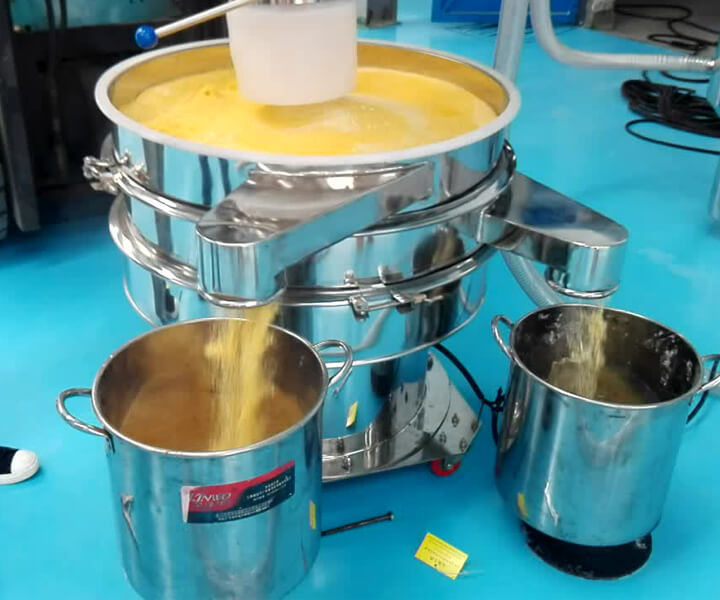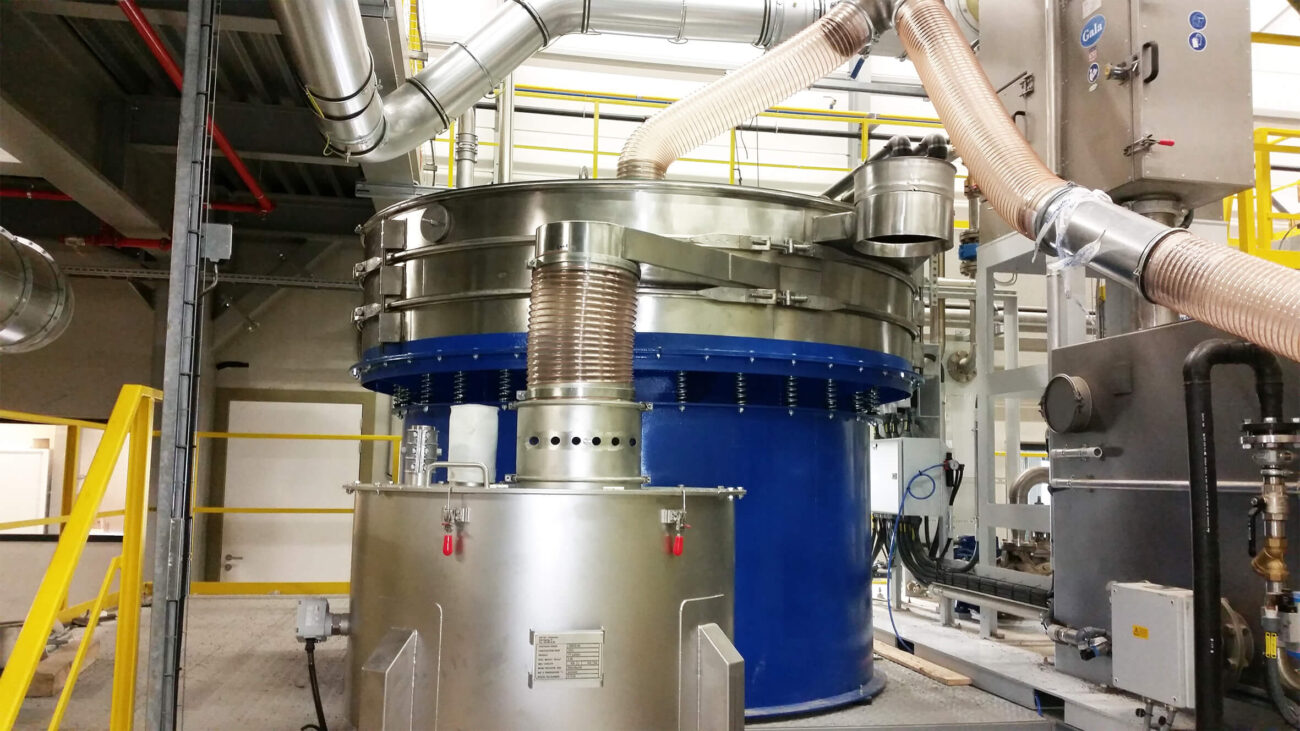In today’s competitive agro-processing landscape, the demand for finely graded, contaminant-free maize flour has never been higher. Whether destined for domestic consumption or international markets, precision and consistency are the benchmarks that define premium quality. To meet these evolving standards, processors require more than traditional equipment—they need advanced screening solutions that ensure uniformity, cleanliness, and efficiency. Aman, a leading name in industrial grain machinery, offers a cutting-edge maize flour vibrating screen machine that is engineered to deliver clean separation, accurate grading, and enhanced production throughput at every stage of processing.

Elevating Precision in Maize Flour Refinement
Maize, a staple grain across continents, demands advanced processing methodologies to meet modern consumption standards. With consumer preferences shifting towards refined, uniform, and contaminant-free flour, conventional machinery no longer suffices. Technological innovation has emerged as the linchpin of quality assurance, and in this paradigm shift, Aman has positioned itself at the forefront. By introducing a sophisticated suite of screening solutions tailored specifically for maize flour refinement, Aman is redefining what it means to achieve industrial-scale precision.
The core of this transformation lies in the deployment of the sieve shaker machine, a system engineered to maintain fidelity in particle size and eliminate inconsistencies within the production cycle. Unlike rotary or static screens that often falter under high throughput, Aman‘s vibratory solution utilizes dynamic oscillatory energy to accelerate stratification and expel fine impurities. Through its high-frequency motion, the machine ensures rapid separation without compromising flour integrity. Whether operating in primary milling facilities or export-focused packaging lines, this machinery delivers unmatched performance.
Moreover, the equipment is especially suitable for fine screening during export, a phase where international quality thresholds are most stringent. Export-grade maize flour must not only be devoid of visible contaminants but also exhibit a consistent mesh size and flow characteristic suitable for diverse culinary applications. Failure to meet these criteria results in shipment rejections, economic losses, and reputational risk. Aman circumvents these pitfalls with precision-engineered systems that harmonize output quality with compliance requirements.
One of the most critical functions of this screening system is its capacity to screen out lumps and improve uniformity. Lumping, often a result of moisture reabsorption or storage inconsistencies, compromises the reconstitution behavior of maize flour in industrial and domestic settings. By de-agglomerating particles and restoring powder fluidity, Aman‘s system ensures product readiness for batching, mixing, and direct consumer use. The result is a final product that maintains consistency in color, texture, and particle behavior—key attributes that command premium market pricing.

Optimized Post-Shelling Purification and Grading
The journey from whole maize kernel to market-ready flour encompasses numerous critical stages, with post-shelling purification representing a keystone phase. After shelling, grade and sieve out impurities becomes the operational mantra. This stage is not merely a matter of separating husk from kernel residue—it is about delivering a pure, contaminant-free intermediate that will eventually define the sensory and functional profile of the end product.
To that end, Aman has introduced screening systems that transcend basic mechanical separation. Their platforms are calibrated to detect and expel foreign particulates including insect fragments, residual bran layers, sand granules, and metallic traces. This is achieved using a dual-action mechanism: vibratory separation for size differentiation and integrated magnetic sieves for metal elimination. The result is a flour stream that upholds regulatory standards such as HACCP, ISO 22000, and various regional food safety mandates.
At the heart of this process is the commercial sieve machine, a high-throughput, low-maintenance solution that is redefining industrial maize flour production. Designed with multi-tier decks, this unit simultaneously executes primary and secondary screening, reducing labor dependency and enhancing process control. The high-frequency motion enables finer mesh performance without screen clogging—an endemic issue in conventional setups. In turn, this reduces machine downtime and augments operational continuity, which is especially vital in continuous-run manufacturing facilities.
Another distinguishing element of Aman’s engineering philosophy is sanitation-centric design. The internal surfaces of the sieve assemblies are fabricated from food-grade stainless steel, polished to a mirror finish that inhibits microbial colonization and facilitates easy cleaning. Screens are tensioned using quick-release clamps, making tool-free replacement and inspection possible within minutes. These features not only enhance hygiene but also contribute to lean manufacturing principles by reducing non-productive time.
Furthermore, Aman‘s systems integrate seamlessly with upstream and downstream equipment. From pneumatic conveying lines to micro-dosing silos and bagging stations, the sieve system acts as a central conduit ensuring flow consistency. As demand surges for traceable, clean-label maize flour, this level of integration allows processors to maintain batch integrity while scaling production to meet global orders. The value of such integration is multiplied when addressing multi-country compliance, where screening requirements vary by destination.

Scalable Technology for Global-Grade Output
In a sector where competitiveness hinges on production agility, throughput accuracy, and global compliance, scalable technology is no longer optional. Aman‘s maize flour screening solutions exemplify this need through a modular, adaptive architecture that caters to both small-scale millers and industrial exporters. Each unit is designed to be customizable, enabling deployment across diverse production environments—from legacy infrastructure to fully automated smart factories.
The modular build of the sieve shaker machine allows clients to adjust screen mesh sizes, vibration frequencies, and incline angles, thereby adapting to variations in raw maize properties. Whether processing hard dent corn, flint corn, or specialty heirloom varieties, the equipment can be fine-tuned for optimal separation outcomes. This degree of configurability is rare and invaluable, particularly when raw material characteristics fluctuate due to climate, source origin, or seasonal variation.
In addition, Aman‘s data-driven framework introduces a new dimension of control. Sensors embedded within the sieve structure transmit real-time metrics on vibration amplitude, material throughput, and mesh performance. This telemetry enables predictive maintenance, fault detection, and quality tracking. When tied to centralized ERP systems, the data flow supports compliance reporting, batch traceability, and performance auditing—critical functions in ISO-certified and export-driven operations.
The machine’s robust construction further assures longevity in high-demand environments. Industrial-grade bearings, reinforced vibration motors, and anti-fatigue frames guarantee sustained performance under round-the-clock operation. Maintenance intervals are extended, while total cost of ownership is substantially reduced—factors that influence capital investment decisions across procurement departments.
What also sets Aman apart is their client-oriented R&D approach. By partnering with maize processors in Africa, Southeast Asia, and South America, the company continuously refines its products to accommodate regional grain characteristics and processing habits. This field-tested knowledge translates into equipment that is globally compatible yet locally optimized—a rare blend in a market flooded with one-size-fits-all machinery.
Lastly, the entire processing system is engineered to deliver product that is especially suitable for fine screening during export. With contamination thresholds tightening across major import markets, the ability to consistently produce clean, homogeneous flour is a decisive competitive advantage. Aman’s systems enable maize flour producers to meet these benchmarks with confidence, ensuring smoother customs clearance, higher contract retention, and brand differentiation in saturated markets.
Conclusion
In the evolving landscape of maize flour processing, where precision, purity, and scalability dictate market success, the need for high-performance screening technology has never been greater. Aman, through its innovative range of vibratory equipment—including the sieve shaker machine and the high-capacity commercial sieve machine—has emerged as the technological vanguard of the industry. By enabling processors to screen out lumps and improve uniformity, grade and sieve out impurities after shelling, and ensure that every output batch is especially suitable for fine screening during export, Aman delivers a compelling value proposition for processors seeking to future-proof their operations. As the global demand for high-grade maize flour accelerates, only those aligned with precision machinery and intelligent process control will define the new standard—and Aman is leading that revolution.
